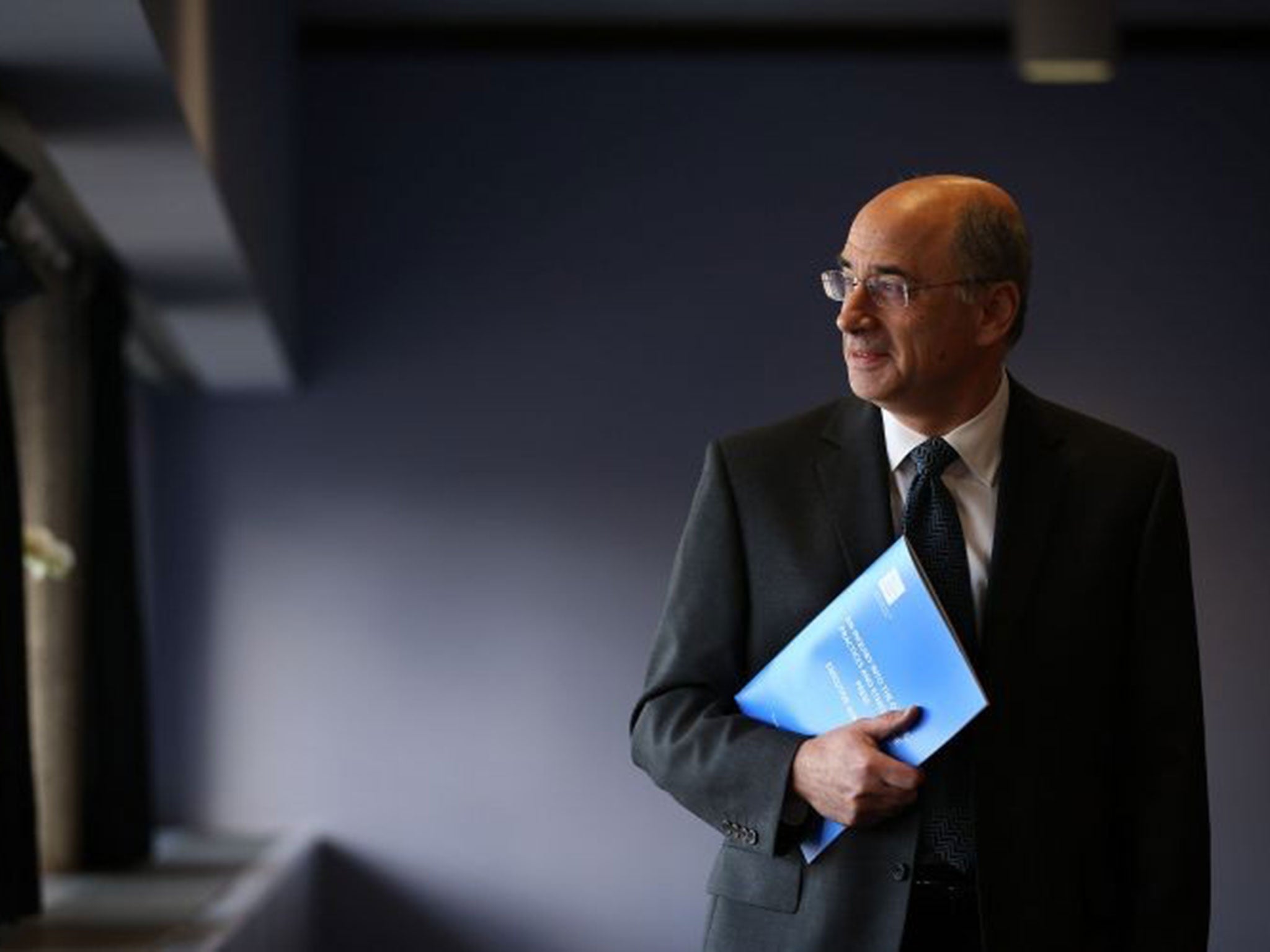Politicians haven’t given up on getting back at the press – the Data Protection Bill proves it
Those who believe the press ‘got away with it’ after Leveson are using parliamentary tactics to try to outmanoeuvre the Government


Your support helps us to tell the story
From reproductive rights to climate change to Big Tech, The Independent is on the ground when the story is developing. Whether it's investigating the financials of Elon Musk's pro-Trump PAC or producing our latest documentary, 'The A Word', which shines a light on the American women fighting for reproductive rights, we know how important it is to parse out the facts from the messaging.
At such a critical moment in US history, we need reporters on the ground. Your donation allows us to keep sending journalists to speak to both sides of the story.
The Independent is trusted by Americans across the entire political spectrum. And unlike many other quality news outlets, we choose not to lock Americans out of our reporting and analysis with paywalls. We believe quality journalism should be available to everyone, paid for by those who can afford it.
Your support makes all the difference.It is nine years since the parliamentary expenses scandal erupted and we learnt the juicy details of how some MPs were gaming the system to feather their own nests – and second nests; and duck houses.
Yet nearly a decade on, it is hard to knock the suspicion that a few of those who felt ambushed over their expenses remain motivated by a desire for revenge.
Back in January, the former head of the Independent Parliamentary Standards Authority (Ipsa), Sir Ian Kennedy, accused MPs of engaging in a “squalid vendetta”, when they blocked his appointment to a new role as an electoral commissioner. Ipsa was the body set up in the wake of the expenses scandal to clean up the system; Kennedy suggested that many in Parliament “simply want the old system back”.
If MPs were sore about the way expenses rules had been overhauled, it is not difficult to imagine the anger that they felt towards those who had exposed the scandal in the first place – the press.
Indeed, for all the gracious words at the time about how the revelations demonstrated the need for reform, it also true that a sizable number of MPs believed that the way in which information had been published was highly invasive.
When the newspaper industry was hit with its own scandal just two years later, therefore, it was unsurprising perhaps that politicians had such sympathy for victims of media intrusion. Quite aside from the fact that much of the behaviour exposed before and during the Leveson Inquiry was objectively disgraceful, there was a sense that some MPs saw an opportunity to settle some scores.
Sure enough, the shameful exposure of so many misdeeds – from phone hacking to blagging and much in between – cast a considerable shadow over sections of the press and cost more than a few people their jobs (and in some cases their liberty).
Yet for some in Parliament, just as for some campaigners for press reform, a final reckoning – in the form of stricter, state-backed regulation – did not come to pass. Instead, we have ended up with the curious situation in which the bulk of the press is self-regulated via the Independent Press Standards Organisation, while a few, lesser-known titles have joined the system overseen by Impress – funded at arm’s length by Max Mosley and officially recognised by a panel which is funded by the Exchequer.
Last week, it appeared that the Government had made a defining break with the past when it announced that it had cancelled the second part of the Leveson Inquiry. Just as significantly, it reaffirmed its intention not to trigger Section 40 of the Crime and Courts Act, a piece of legislation which would see those media organisations not regulated by an officially recognised regulator (eg Impress, Ofcom) hit with heavy legal costs, even when claims had no merit.
But if you thought this might be the end of the debate, you would be oh so wrong.
This week, the Data Protection Bill is being debated in the House of Commons; its primary purpose to bring some EU regulations into UK law. Yet amendments introduced by the House of Lords would effectively establish a statutory pathway to an investigation akin to Leveson II and create similar cost-shifting provisions to those envisaged by Section 40.
In sum, those who believe the press “got away with it” after Leveson are using parliamentary tactics to try to outmanoeuvre the Government.
For those genuinely wronged by the press – and there are, it is true, too many of those – it is eminently understandable that they should feel regulation and legal punishments are appropriate.
Yet the reality is that the amendments to the bill could have a hugely negative impact on journalism in this country – especially investigative reporting. It would, at a stroke, empower people in positions of power – and with deep pockets – with the tools they need to stop journalists prying into things that they very much ought to be prying into.
If you assume they believe in democracy and a free press that seems an extraordinary thing for politicians to want to achieve – even if you accept that it is right that members of the public are protected against illegitimate intrusion.
Fundamentally, the press has a duty to behave responsibly. But it must also be empowered to act in the interests of the public by investigating dodgy deals, murky secrets, hypocrites and charlatans of every sort – and even, should the need arise, the way elected representatives are remunerated beyond their basic salaries.
Join our commenting forum
Join thought-provoking conversations, follow other Independent readers and see their replies
Comments